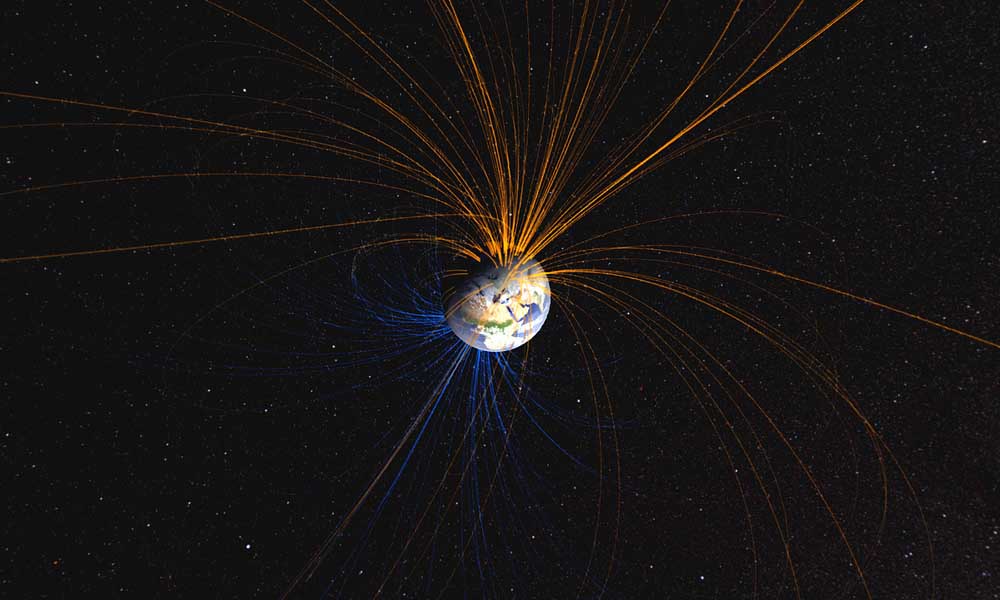John Tarduno, professor and chair of the Department of Earth and Environmental Science, researches the history of Earth’s geomagnetic field, which surrounds and protects our planet from harmful space radiation. This magnetic field reverses or flips irregularly every “several hundred thousand years or so,” write Tarduno and Vincent Hare, a postdoctoral associate in the department, in an article shared online by Newsweek.
For the last 160 years, the Earth’s magnetic field has been decreasing in an area known as the South Atlantic Anomaly, extending from southern Africa to Chile. Tarduno and Hare outline the possible effects of this continued weakening:
Such a major change would affect our navigation systems, as well as the transmission of electricity. The spectacle of the northern lights might appear at different latitudes. And because more radiation would reach Earth’s surface under very low field strengths during a global reversal, it also might affect rates of cancer. We still don’t fully understand what the extent of these effects would be.
The authors go on to explain archaeomagnetism research, in which geophysicists team up with archaeologists to study the past magnetic field. In 2015, Tarduno and his team of researchers reported the first measurements of South Africa’s Iron Age magnetic field history. The data indicate that southern Africa may be one of the “special places at the core-mantle boundary that promote [pole] reversals.”
Scientists do not yet know for certain if the Earth’s magnetic field is currently reversing or simply fluctuating, but the work of geophysicists like Tarduno, Hare, and other researchers could provide valuable insights about this planetary process.
The full article is available online at Newsweek and The Conversation.





